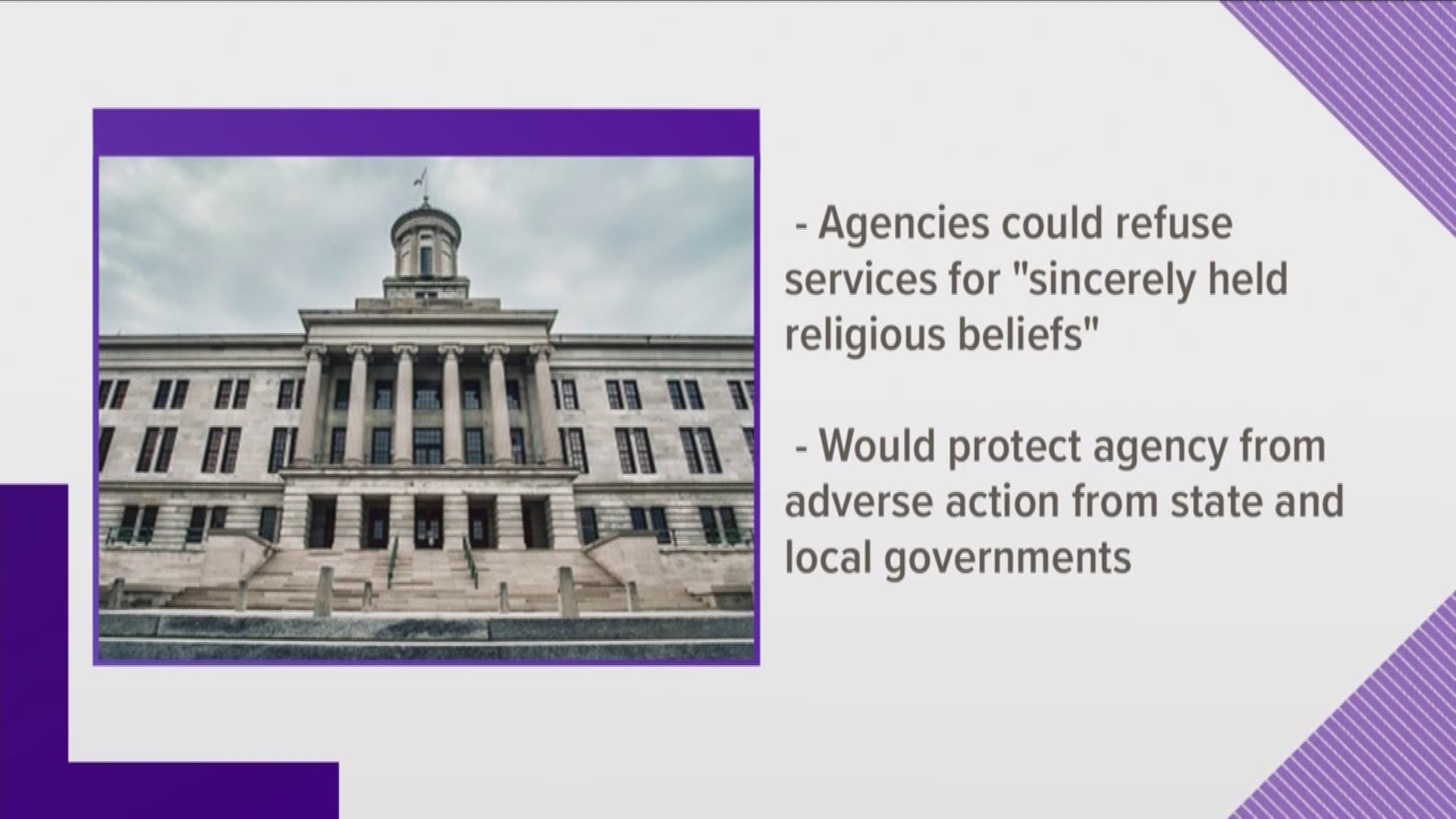Two bills proposed in the Tennessee legislature would allow adoption agencies to deny services to people based on their religious beliefs.
The first bill states adoption agencies would not be required to provide services to a couple if it would conflict with the agency's "sincerely held religious beliefs."
It reads: "As introduced, specifies that a child-placing agency shall not be required to provide adoption services that conflict with the agency's sincerely held religious beliefs; prohibits adverse action by an agency of state or local government against a child-placing agency for declining to provide services that conflict with the agency's sincerely held religious beliefs."
That bill would also prevent state and local governments from taking adverse action against the agency.
A second bill would allow similar restrictions based on religious beliefs, but this bill would prevent a couple from suing the adoption agency for refusing to provide services.
It reads: "As introduced, prohibits a private licensed child-placing agency from being required to perform, assist, consent to, refer, or participate in any child placement for foster care or adoption that would violate the agency's written religious or moral convictions."
One of the biggest concerns with these bills is the restrictions it could place on LGBTQ couples from adopting. Some wonder if the supreme court would even allow legislation like this but experts said the courts could favor these bills.
"The reason it will probably muster is that the court has shown a great deal of willingness to protect religious freedom in the recent past, even perhaps to the exclusion of equality," said Lincoln Memorial University Professor of Law Stewart Harris. "And so that's the essential conflict here isn't it, some people say this is our religious right, other people say no, you're impacting negatively my ability to be an equal citizen."

